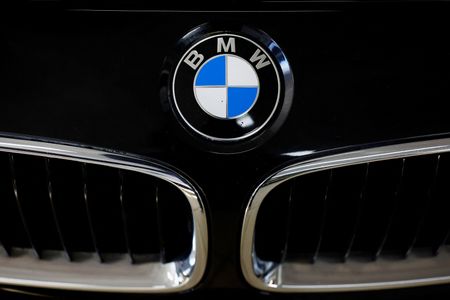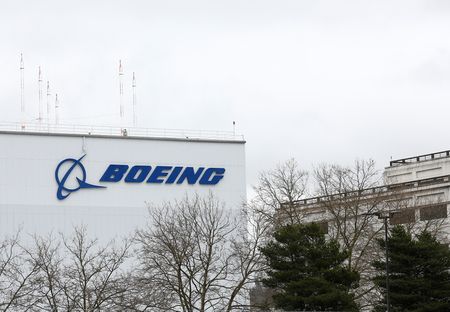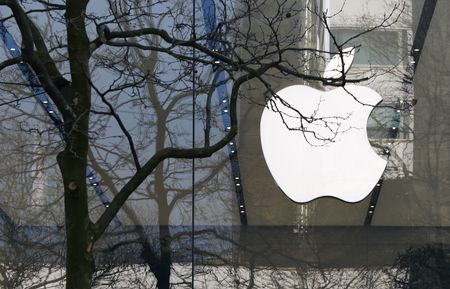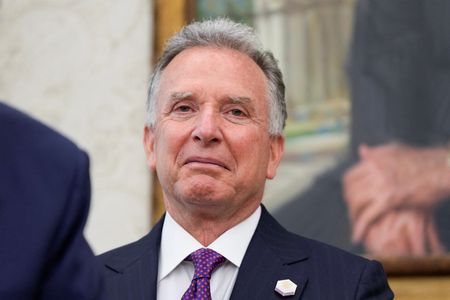By Christoph Steitz and Nick Carey
FRANKFURT/LONDON (Reuters) – BMW expects U.S. car tariffs to decline from July, based on its contacts with U.S. officials, a more upbeat assessment of the trade situation than many rivals and leading the German luxury automaker to confirm its 2025 outlook.
The company warned, however, that tariffs imposed by U.S. President Donald Trump would have a “notable” impact on its second-quarter results. Executives declined to estimate that hit during a call with analysts on Wednesday.
BMW’s biggest plant is in the United States and it is the country’s top auto exporter by value. The company said it was engaged in multi-level talks with U.S. policymakers and that its arguments for easing tariffs were being acknowledged.
“We are noticing that things are moving, developing and being negotiated everywhere,” finance chief Walter Mertl said. “Accordingly, our reading, based on all the networks that we have at our disposal, is that we assume that something will change in July.”
CEO Oliver Zipse said BMW’s operations in South Carolina, home to its Spartanburg plant, supported around 43,000 direct and indirect jobs and made an economic contribution of more than $26 billion a year.
“Knowing that we are the largest exporter, we are convinced that this will play a role in some appropriate form in the negotiations in the coming weeks,” Zipse said.
“We can already see that this will not be ignored, our large footprint,” he said, declining to elaborate. Zipse said BMW was deeply rooted in the U.S. market and was talking to all stakeholders to make its point.
TEMPORARY TARIFFS?
Many of BMW’s rivals, including Mercedes-Benz, Ford and Stellantis, have pulled their 2025 forecasts, blaming the uncertainty caused by U.S. trade policy.
BMW said its 2025 outlook, which was provided in March and factored in all tariffs announced up to that point, still stood. It has forecast earnings before tax on a par with 2024 and an operating margin at its automotive business of 5-7%.
The company said that while it could only estimate the potential impact of tariffs, it expected “some of the tariff increases to be temporary, with reductions from July 2025”.
BMW shares were 1.3% higher at 1011 GMT, after the company reported first-quarter earnings before interest and tax of 2.02 billion euros ($2.3 billion) at its auto unit, beating analysts’ average forecast of 1.85 billion euros in an LSEG poll.
Helped by strong orders and cost discipline, the unit’s operating margin reached 6.9%, down from the 8.8% in the same period of last year, but beating the 6.3% forecast in the poll.
“In an environment where its peers have been withdrawing guidance left, right and centre, BMW’s decision to stick with guidance was well-received by the market,” Russ Mould, investment director at AJ Bell, said in a note.
“Part of this is predicated on some tariffs going into reverse from July onwards – so investors will be able to judge from the summer whether or not the current forecasts remain credible.”
BMW included the caveat that its business performance in 2025 may deviate if tariffs increase or remain in place for longer than anticipated, and flagged the risk of potential supply bottlenecks for specific parts or raw materials.
($1 = 0.8803 euros)
(Reporting by Christoph Steitz and Nick Carey. Additional reporting by Christina Amann, Anika Ross and Paolo Laudani. Editing by Kirsti Knolle, Tomasz Janowski and Mark Potter)











